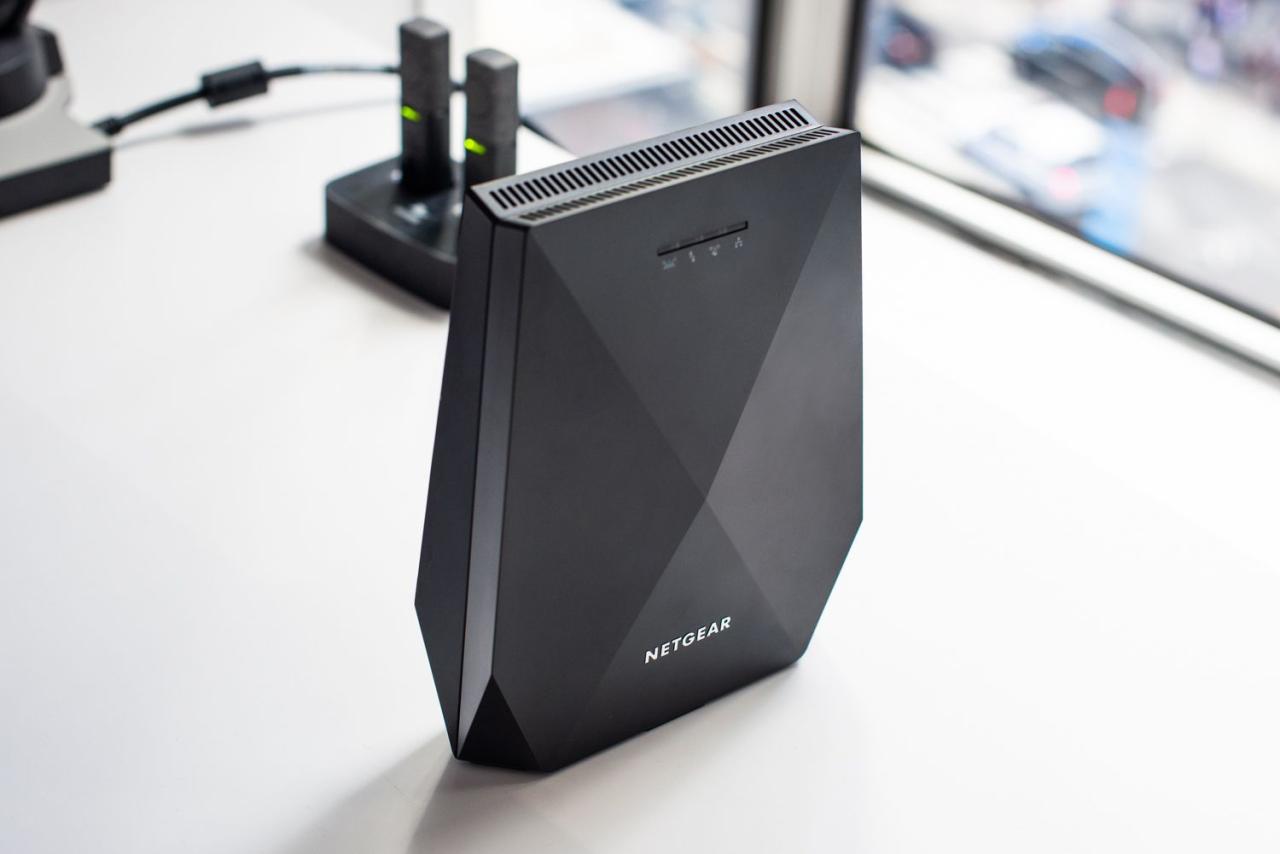Amplificateur Wifi, or Wi-Fi extender in English, is your secret weapon against frustratingly weak Wi-Fi signals. Imagine a world where streaming movies doesn’t buffer, video calls are crystal clear, and online gaming is lag-free, all thanks to a simple device boosting your network’s reach. This guide will walk you through everything you need to know about choosing, installing, and optimizing your amplificateur wifi for maximum performance.
We’ll explore the different types of extenders – range extenders, powerline adapters, and mesh systems – comparing their strengths and weaknesses to help you find the perfect fit for your home or office. We’ll cover crucial technical specs, provide practical setup instructions, and troubleshoot common issues. By the end, you’ll be a Wi-Fi amplification expert!
Understanding “Amplificateur Wifi”
A wifi amplifier, or extender, boosts your existing Wi-Fi signal to reach areas where it’s weak or unavailable. This improves internet access throughout your home or office. Several types of amplifiers exist, each with its strengths and weaknesses.
Wifi Amplifier Functions
The primary function of a wifi amplifier is to increase the range and strength of your wireless network signal. It receives the signal from your router, amplifies it, and rebroadcasts it, extending the reach of your internet connection.
Types of Wifi Amplifiers
The market offers various wifi amplifiers, each with different technologies and capabilities. The most common types include range extenders, powerline adapters, and mesh systems.
Comparing Amplifier Technologies
Range extenders are the most common and often the most affordable. They connect wirelessly to your router and rebroadcast the signal. Powerline adapters use your home’s electrical wiring to transmit the internet signal, offering a more stable connection but potentially slower speeds. Mesh systems consist of multiple units working together to create a seamless, whole-home network, providing the best coverage and performance but at a higher cost.
| Model | Price (USD) | Range (approx. m) | Ease of Setup |
|---|---|---|---|
| TP-Link RE200 | $20 – $30 | 30-45 | Easy |
| Netgear Nighthawk EX700 | $70 – $90 | 50-75 | Moderate |
| Google Nest Wifi (2-pack) | $200 – $250 | 100+ (depending on placement) | Easy |
Technical Specifications and Features
Several key technical specifications significantly influence a wifi amplifier’s performance. Understanding these specifications helps you choose the right amplifier for your needs.
Key Technical Specifications
- Frequency Bands: Look for support for both 2.4GHz and 5GHz bands for optimal performance and compatibility.
- Data Rates: Higher data rates (measured in Mbps) indicate faster speeds.
- Power Output: A higher power output generally translates to a greater range, but check local regulations.
- Antenna Type: Different antenna types (internal vs. external, single vs. multiple) affect signal strength and coverage.
Signal Strength and Bandwidth
Strong signal strength ensures reliable internet connectivity, while sufficient bandwidth is crucial for handling multiple devices and data-intensive applications simultaneously. A good amplifier will improve both.
Antenna Types and Performance
External antennas generally provide better signal strength and range compared to internal antennas. Multiple antennas (MIMO) further enhance performance by using multiple streams of data simultaneously.
Diagram Illustrating Signal Coverage Improvement, Amplificateur wifi

Imagine a circle representing your router’s wifi coverage. It’s relatively small. Now, imagine a wifi amplifier placed strategically within the weaker areas of that circle. This amplifier creates a second, overlapping circle of coverage extending the overall reach. The combined coverage area of the router and the amplifier is significantly larger than the router’s coverage alone.
The overlap area represents an area with stronger signal strength.
Installation and Setup Procedures
Setting up a wifi amplifier is generally straightforward. However, following best practices ensures optimal performance and minimizes potential issues.
Step-by-Step Installation
- Connect the amplifier to a power source.
- Connect to the amplifier’s network using a device (phone, computer).
- Locate your main router’s SSID and password (often found on a sticker on the router).
- Use the amplifier’s interface (usually via a web browser) to connect it to your router’s network.
- Configure the amplifier’s SSID and password (optional, but recommended to create a separate network name for the extended signal).
Troubleshooting Common Issues
- Weak signal: Try relocating the amplifier closer to the router or in a more central location.
- Connection drops: Check for interference from other electronic devices or physical obstacles.
- Slow speeds: Ensure the amplifier supports the same frequency bands as your router.
Best Practices for Optimization

- Place the amplifier in a central location, minimizing physical obstructions.
- Keep the amplifier away from other electronic devices that may cause interference.
- Use a wired connection whenever possible to reduce wireless interference.
Configuring Security Settings
Set a strong, unique password for the amplifier’s network to prevent unauthorized access. Consider enabling WPA2 or WPA3 encryption for enhanced security.
Applications and Use Cases
Wifi amplifiers are beneficial in various scenarios, particularly in homes or offices with limited or uneven wifi coverage.
Beneficial Scenarios
- Homes with large floor plans or multiple floors.
- Areas with thick walls or other obstructions that hinder wifi signals.
- Homes with numerous devices consuming bandwidth.
- Offices needing extended wifi coverage for employees or guests.
Amplifiers vs. Router Upgrades

A wifi amplifier is a cost-effective solution for extending existing coverage, while upgrading your router provides a more comprehensive solution but is generally more expensive. Amplifiers are ideal for extending existing networks, whereas a router upgrade often provides better performance throughout the entire network.
Industries Benefiting from Wifi Amplifiers
- Hospitality (hotels, restaurants)
- Retail (large stores)
- Education (schools, universities)
- Healthcare (hospitals, clinics)
Choosing the Right Amplificateur Wifi
Selecting the right wifi amplifier depends on several factors, including your budget, home size, and the number of devices you need to support.
So you’re looking at getting a wifi extender, an amplificateur wifi, to boost your signal? That’s smart! Good internet is crucial, especially if you’re flying a drone, like one you might find at best buy drone – their range depends heavily on a strong signal. A solid wifi amplifier can really make a difference in getting the best performance from your drone’s video feed and control.
Make sure to check your router’s placement too for optimal wifi strength.
Factors to Consider
- Home size and layout: Larger homes may require more powerful amplifiers or a mesh system.
- Number of devices: More devices require greater bandwidth capacity.
- Budget: Range extenders are typically the most affordable, while mesh systems are the most expensive.
- Ease of use: Some amplifiers are easier to set up than others.
Comparing Amplifier Models
Compare models based on their specifications, including frequency bands, data rates, range, and security features. Read online reviews to get user feedback.
Reputable Brands
Several reputable brands offer reliable wifi amplifiers, including TP-Link, Netgear, Asus, and Linksys. These brands generally provide good customer support and warranties.
| Amplifier Type | Pros | Cons |
|---|---|---|
| Range Extender | Affordable, easy to set up | Can reduce overall network speed, potential for interference |
| Powerline Adapter | Reliable connection, uses existing wiring | Speed limitations due to electrical wiring, may not work well in all homes |
| Mesh System | Excellent coverage, seamless roaming, high performance | Expensive, requires multiple units |
Concluding Remarks
From understanding the basics of how an amplificateur wifi works to mastering its setup and optimization, we’ve covered the essential aspects of boosting your wireless network. Remember, choosing the right amplifier depends on your specific needs, considering factors like home size, number of devices, and budget. With a little planning and the right equipment, you can banish weak Wi-Fi signals and enjoy a seamless, high-speed connection throughout your space.
So go ahead, upgrade your Wi-Fi experience!
So you’re thinking about getting a wifi amplifier to boost your signal, right? That’s smart! Before you dive in, though, you might want to check if everything’s working on your end; sometimes slow speeds are because of something else entirely, like if ChatGPT is acting up – check here to see if it’s down: is chatgpt down.
Once you’ve ruled that out, you can confidently choose the best wifi amplifier for your needs.
General Inquiries
What’s the difference between a range extender and a mesh Wi-Fi system?
So you’re looking at getting a wifi amplifier to boost your signal, right? That’s smart! Choosing the right one can be tricky, but figuring out the best placement is key. Sometimes, finding the perfect spot feels like solving a puzzle, almost as hard as finding a 10 letter word starting with ai ! Once you’ve got that placement nailed down, though, your wifi amplifier will be working wonders, giving you a much stronger and more reliable connection.
Range extenders simply repeat your existing Wi-Fi signal, while mesh systems create a unified network with multiple access points for seamless coverage.
How far can a Wi-Fi amplifier extend my network’s range?
The range varies depending on the amplifier’s power and the environment. Expect anywhere from a few extra rooms to a whole floor, but obstructions like walls significantly impact range.
Can I use too many Wi-Fi amplifiers?
Yes, using too many can actually slow down your network due to signal interference and overlapping channels. Start with one and add more only if necessary.
Will a Wi-Fi amplifier affect my internet speed?
It can slightly reduce speeds, as the signal is being repeated, but a good quality amplifier minimizes this impact. The improvement in coverage often outweighs the slight speed reduction.